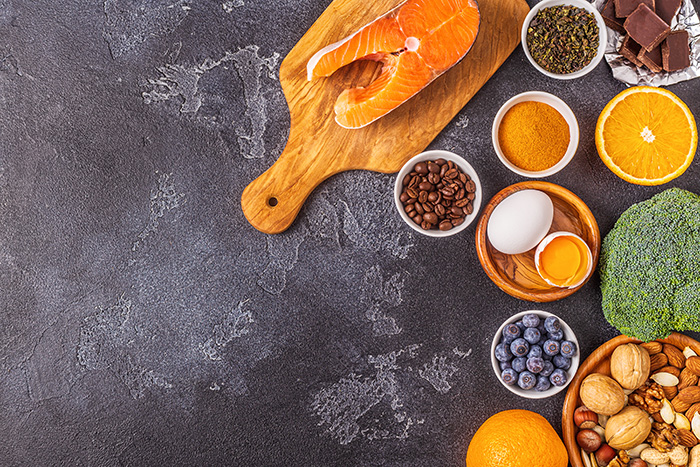
Diabet Energy-Boost Foods You’ll Want to Try: Fueling Your Body the Smart Way
Managing diabetes can feel like navigating a complex maze. One of the biggest challenges is maintaining stable blood sugar levels. This is crucial for overall health and energy. It’s time to explore the world of diabet energy-boost foods. These foods offer sustained energy. They also help regulate blood sugar levels. This article will guide you through the best choices.
The focus is on actionable advice. It’s about providing you with the knowledge to make informed dietary choices. These choices can significantly impact your daily life. Learn about the foods that can enhance your energy levels. Discover how to build a balanced diet. This is essential for managing diabetes effectively. This includes understanding the glycemic index and load. It also means knowing how to read food labels. Let’s dive into the essentials of diabet energy-boost foods.
Understanding Diabetes and Energy Levels
Diabetes affects how the body processes glucose. Glucose is the primary source of energy. In people with diabetes, either the body does not produce enough insulin. Alternatively, the body cannot effectively use the insulin it produces. This leads to high blood sugar levels. This can cause fatigue, lethargy, and other health complications. A well-managed diet is crucial. It helps keep blood sugar levels within a healthy range.
Energy levels fluctuate throughout the day. This is especially true for individuals with diabetes. These fluctuations are often linked to food choices. The wrong foods can cause blood sugar spikes. These spikes lead to energy crashes. The right foods, however, can provide a steady stream of energy. This helps to stabilize blood sugar. They also enhance overall well-being.
The Power of Fiber: A Diabetes-Friendly Staple
Fiber is a carbohydrate that the body cannot digest. It plays a vital role in managing blood sugar levels. It does this by slowing down the absorption of sugar. This prevents rapid spikes in blood glucose. Fiber also promotes feelings of fullness. This can help with weight management. Weight management is essential for diabetes control.
There are two main types of fiber: soluble and insoluble. Soluble fiber dissolves in water. It forms a gel-like substance in the digestive system. This slows down the absorption of sugar and cholesterol. Insoluble fiber does not dissolve. It adds bulk to the stool. This helps with digestive health. Both types of fiber are beneficial for people with diabetes.
- Good sources of soluble fiber: Oats, beans, lentils, apples, and citrus fruits.
- Good sources of insoluble fiber: Whole grains, vegetables, and nuts.
Incorporating fiber-rich foods into your diet is a cornerstone of diabet energy-boost foods. Aim for at least 25-30 grams of fiber per day. This will help manage blood sugar. It also supports overall health.
Protein: The Energy Sustainer
Protein is essential for building and repairing tissues. It also plays a crucial role in energy levels. Protein helps to stabilize blood sugar levels. It does this by slowing down the digestion of carbohydrates. This prevents rapid blood sugar spikes. Protein also promotes a feeling of fullness. This can reduce overeating.
Choose lean protein sources. These are lower in saturated fat. They are also beneficial for heart health. Examples include: fish, poultry, beans, lentils, and tofu. Protein should be included in every meal. This helps to maintain stable energy levels throughout the day.
Protein is a key component of diabet energy-boost foods. It provides a sustained release of energy. This prevents energy crashes. It also supports overall health.
Healthy Fats: The Unsung Heroes
Healthy fats are often overlooked in the context of diabetes management. However, they play a crucial role. They help to regulate blood sugar levels. They also promote satiety. Unsaturated fats are particularly beneficial. These include monounsaturated and polyunsaturated fats.
- Monounsaturated fats: Found in avocados, olive oil, and nuts.
- Polyunsaturated fats: Found in fatty fish, such as salmon. They are also found in flaxseeds and walnuts.
Healthy fats help slow down the absorption of sugar. They also provide a sustained source of energy. They are essential for overall health. They also contribute to a balanced diet. Healthy fats are a crucial element of diabet energy-boost foods.
The Best Diabet Energy-Boost Foods
Now, let’s delve into specific foods. These foods are excellent choices for boosting energy. They also help manage blood sugar levels. These are the diabet energy-boost foods you should consider.
Non-Starchy Vegetables
These vegetables are low in carbohydrates. They are high in fiber and nutrients. They have a minimal impact on blood sugar levels. They are an excellent choice for people with diabetes. Examples include: leafy greens, broccoli, cauliflower, and bell peppers.
Whole Grains
Choose whole grains over refined grains. They have a lower glycemic index. They are higher in fiber. They provide sustained energy. They also help regulate blood sugar. Examples include: oats, quinoa, and brown rice.
Legumes
Beans, lentils, and peas are packed with fiber and protein. They are low in fat. They also release energy slowly. They are an excellent choice for blood sugar control. They are a cornerstone of diabet energy-boost foods.
Berries
Berries are rich in antioxidants. They are also high in fiber. They have a moderate impact on blood sugar. They can provide a natural energy boost. Consider blueberries, strawberries, and raspberries.
Nuts and Seeds
Nuts and seeds are a great source of healthy fats, protein, and fiber. They help to stabilize blood sugar. They also provide sustained energy. Choose unsalted varieties. Examples include: almonds, walnuts, chia seeds, and flaxseeds.
Fatty Fish
Fatty fish, such as salmon and tuna, are rich in omega-3 fatty acids. They are beneficial for heart health. They also help to regulate blood sugar levels. They provide a sustained source of energy.
Greek Yogurt
Greek yogurt is high in protein. It is low in carbohydrates. It can help to stabilize blood sugar levels. Choose plain, unsweetened varieties. You can add berries or nuts for extra flavor and nutrients. This is an excellent option for diabet energy-boost foods.
Building a Balanced Meal Plan
Creating a balanced meal plan is crucial for managing diabetes. Focus on portion control. Also, pay attention to the balance of macronutrients. This means a combination of carbohydrates, protein, and healthy fats. Aim for meals that include:
- Fiber-rich carbohydrates: Whole grains, non-starchy vegetables.
- Lean protein: Fish, poultry, beans, lentils.
- Healthy fats: Avocados, olive oil, nuts, seeds.
Plan your meals ahead of time. This helps you make healthy choices. It also prevents impulsive decisions. Keep healthy snacks on hand. This helps you avoid unhealthy options. This is an integral part of incorporating diabet energy-boost foods.
Snack Smart: Quick Energy Boosters
Snacks can be a vital part of a diabetes-friendly diet. They help to keep blood sugar levels stable. They also prevent energy crashes. Choose snacks that combine protein, fiber, and healthy fats. This will provide sustained energy.
- A handful of almonds and a small apple.
- Greek yogurt with berries.
- A hard-boiled egg with a few whole-grain crackers.
- Vegetable sticks with hummus.
Plan your snacks in advance. This helps you to make healthy choices. It also helps you manage your blood sugar levels effectively. These are important diabet energy-boost foods to consider.
Hydration and Its Impact
Staying hydrated is essential for overall health. It is especially important for people with diabetes. Dehydration can lead to fatigue. It can also affect blood sugar levels. Drink plenty of water throughout the day. Avoid sugary drinks, such as soda and juice. These can cause blood sugar spikes. Water is the best choice for staying hydrated. It is also a crucial aspect of diabet energy-boost foods.
Monitoring and Adjustments
Regularly monitor your blood sugar levels. This allows you to assess how different foods affect your body. Keep a food journal. This will help you track your meals and snacks. Note how your blood sugar levels respond. This information can help you make adjustments to your diet. Consult with a healthcare professional. They can provide personalized guidance.
Don’t hesitate to experiment with different foods. Find out what works best for your body. This is a key part of managing diabetes. It also helps you find the best diabet energy-boost foods for you.
Lifestyle Factors and Diabetes
Diet is not the only factor. Exercise also plays a significant role. Regular physical activity helps improve insulin sensitivity. It also helps manage blood sugar levels. Aim for at least 150 minutes of moderate-intensity exercise. This should be done each week. This is in addition to diabet energy-boost foods.
Stress management is also important. Chronic stress can raise blood sugar levels. Practice relaxation techniques. These include yoga and meditation. Get enough sleep. Sleep deprivation can also affect blood sugar levels. Lifestyle factors are essential for diabet energy-boost foods.
The Bottom Line: Empowering Yourself
Managing diabetes is a journey. It requires a proactive approach. This includes a balanced diet. It also includes regular exercise. It incorporates stress management. Focusing on diabet energy-boost foods is a great start.
By understanding the principles of diabetes management. You can make informed choices. These choices will fuel your body. They will also help you live a healthier life. Consult with your healthcare provider. They can help you create a personalized plan. This plan will meet your specific needs.
Embrace the power of diabet energy-boost foods. Take control of your health. Make informed dietary choices. This will support your energy levels. It will also support your overall well-being. [See also: Best Exercises for Diabetics] [See also: The Importance of Diabetes Education] [See also: Top Diabetes Myths Debunked]

